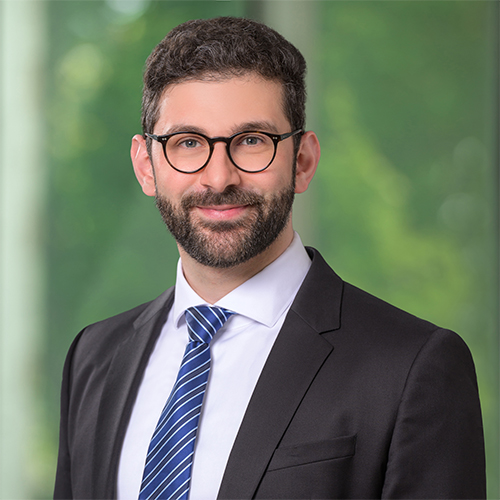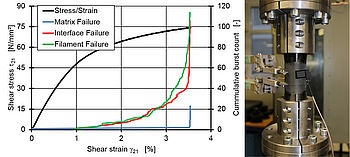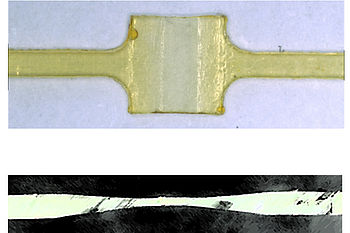SPP 1466
Life ∞ – Eternal Service Life for High-Performance Materials under Cyclic Load
Components of fibre-reinforced plastics (FRP) frequently undergo cyclic loading over their service lives. This calls for static design and makes it indispensable to predict service lives by way of calculation, especially for such components that are relevant to safety.
While a sufficient amount of information is available on the area of 10³-106 load cycles, the area above 106 load cycles (high cycle fatigue, HCF) is barely known, and this is especially true for the area above 108 load cycles (very high cycle fatigue, VHCF).
Due to the heterogeneous structure of FRPs, micro-scale damage processes lead to cumulative damage while under cyclic load, thus marking the successive behaviour of damage and failure. These processes are at the focus of the DFG German Research Association’s priority programme 1466, designed to improve predictabilities of service lives.
Targets of the SPP 1466 research programme
The SPP 1466 research programme is aimed to reach a basic understanding of fatigue and fracture behaviours shown by laminar structures of unidirectional (UD) individual layers while they are submitted to cyclic loading with up to 108 load cycles, and to set up a model description. In particular, the necessary basic understanding of the development of micro damage in UD-reinforced individual layers was attained in experimental tests under multi-axial loading conditions.
Funded by the DFG and managed by Siegen University, the project was launched on 01.01.2011 and completed on 31.12.2016.
Partial results IKV achieved
To determine the mechanisms of micro-scale damage during fibre-matrix delamination, IKV developed a new type of single fibre model composite test specimen, including design and production. Thanks to this specimen, for the first time, IKV was able to conduct reproducible measurements on the rigidities that exist in the interfaces of configurations subject to transverse load. In addition, a reverse engineering process makes it possible to provide fracture-mechanical characteristics at a micromechanical scale for the material combination of carbon fibre and epoxy resin. The entire process can be carried out on a new test machine, under observation through a microscope.
In order to determine experimentally the micro-scale damage and to correlate it to macromechanical measured values, IKV conducted fatigue tests on pipe specimens, which were then submitted to in-situ and non-destructive acoustic emission (AE) analysis. The investigations showed that in all pipe specimens, unless loaded in transverse direction of fibres, micro-damage accumulated not before the end of service life. To conduct these tests, a torsion test rig was built and the theory of AE implemented into a robust algorithm.
Any questions on this programme?

Hakan Çelik, M.Sc.
Head of department Structure Calculation and Materials Technology +49 241 80-28359 hakan.celik@ikv.rwth-aachen.deDo you have any questions regarding this area of research? Then I look forward to your call or message.
This priority programme is promoted by



